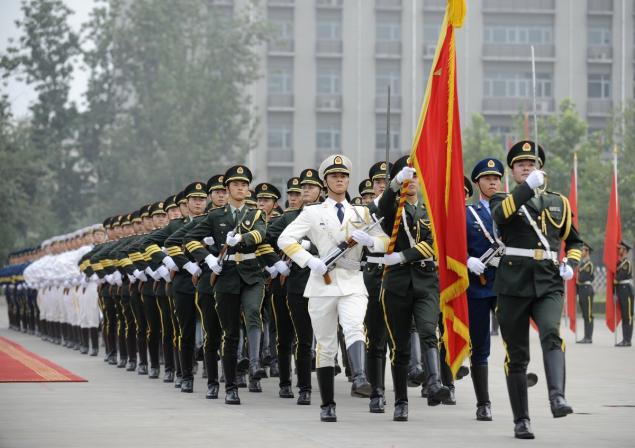China has announced the increasing of its military spending by about 7% in 2017 just days after President Donald Trump outlined a boost to the US defense budget.
The announcement was made ahead of the annual National People’s Congress (NPC) in Beijing.
China has been modernizing its armed forces recently as its economy expands.
Its announced defense budget remains smaller than that of the United States. But many observers argue the real figure could be much higher.
China’s announcement marks the second consecutive year that the increase in its defense spending has been below 10% following nearly two decades at or above that figure.
It means that total spending will account for about 1.3% of China’s projected GDP in 2017, the same level as in recent years, said government spokeswoman Fu Ying.
The precise figure for China’s military spending will be provided by PM Li Keqiang when he addresses the NPC on March 5.
Earlier this week, President Trump said he was seeking to boost defense spending by 9% in his proposed budget for 2018.
China’s military build-up – and projection of naval power – has caused concerns in the region, where it has taken an increasingly assertive stance in territorial disputes.
Beijing has been building artificial islands on reefs in waters also claimed by other nations in the South China Sea.
Pictures published in 2016 show military defenses on some islands, a think-tank says.
Defending its right to build, China has said in the past that it has no intention of militarizing the islands, but has acknowledged building what it calls necessary military facilities for defensive purposes.
There have been sporadic incidents between American and Chinese ships in the South China Sea. At the end of 2016, a Chinese ship seized a US navy underwater drone off the Philippines, but later agreed to return it.
Chinese ships have also been involved in clashes and stand-offs with ships from Vietnam and the Philippines.
Japan signed off a record defense budget in December 2016 in the face of territorial disputes with China in the East China Sea and North Korea’s nuclear and missile threats.
In Beijing, Fu Ying said on March 4 that China advocated “dialogue for peaceful resolutions, while at the same time, we need to possess the ability to defend our sovereignty and interests”.
